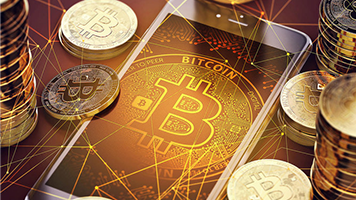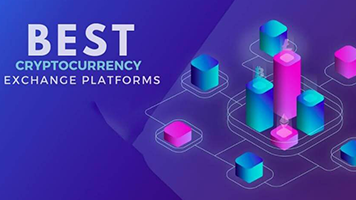How does bitcoin mining work?
B mining is the method of putting new bitcoins into circulating; it's also how the network confirms recent transactions, and it's an integral part of the blockchain ledger's upkeep and development.
"Mining" is done with high-tech apparatus that resolves a complicated computational arithmetic problem. The next block of bitcoins is granted to the first computer to solve the challenge, and the cycle continues again. Here are primary things you should know :
1. You can acquire bitcoin without needing to pay for it by mining.
2. Bitcoin miners are paid in Bitcoin to finish "blocks" of validated payments and add them to the blockchain.
3. The miner who finds an answer to a complicated hashing challenge first receives a reward. The likelihood that a miner will be the one to find the answer is proportional to their share of the network's net mining power.
4. To establish a mining setup, you'll need either a GPU (graphics processing unit) or an application-specific integrated circuit (ASIC).
How Does Bitcoin Mining Work?
Unlike some other traditional currencies, Bitcoin is not supervised, issued, or controlled by a central body like a bank. Miners create Bitcoin instead by utilizing blockchain, an open, digital public database simply a list (or chain) of validated Bitcoin transactions that confirm the total transaction authenticity.
Bitcoin miners utilize specialized computer gear to do the complicated mathematical cryptography computations necessary to confirm each item on the blockchain - a massive operation known as a "proof of work" that includes billions of calculations. Transaction fees and freshly created Bitcoins are given to Bitcoin miners in exchange for their services.
Is it Legal to Mine Bitcoin?
The legality of Bitcoin mining is a complicated issue that varies from country to country. The simple answer is that Bitcoin and Bitcoin mining is legal in many industrialized nations, including the USA, Japan, and the UK.
However, because many jurisdictions' rules and regulations are still in flux, it's a good idea to think about using any cryptocurrency in the context of those laws and regulations. The usage of cryptocurrencies is prohibited in several countries, and mining Bitcoin is not permitted.
Cryptography is not allowed in several countries, such as China and India. It is not illegal to use cryptocurrencies in Canada.
Still, they don't recognize it as legal cash, which is a fundamental contrast in how cryptocurrencies are viewed in the United States.
What Does a Miner Get Paid?
What miners earn can be challenging to forecast, given the pace at which technology and markets can evolve - and new laws, rules, and trends might emerge.
Miners compete to generate a hash, a 64-digit hexadecimal number that is entered into the blockchain record to confirm a Bitcoin transaction. A miner receives 6.25 Bitcoin when a machine performs the calculation.
How can you mine bitcoins?
In principle, anybody could mine Bitcoin with the correct equipment. Due to potential benefits - and the difficulty of the math and technology involved - Bitcoin mining has become highly competitive.
Because a single GPU was 100 times quicker than a central processing unit (CPU), which was how most people were mining at the time, this was a significant shift in Bitcoin mining.
If you want to go into mining, ASICs are a viable alternative. While they are more productive and efficient at executing Bitcoin transactions than their GPU and CPU counterparts, they come with specific upfront fees.
Related Post

Ways to invest in bitcoin without actually buying Bitcoin
There are still methods to invest in crypto, although indirectly, for individuals who are interested in crypto but do not want to acquire and hold…
How can a crypto wallet help you keep your coins safe?
Why should know where you're going to safe store your crypto, just like you should know where to secure your cash and credit cards. When…
Why should you not store cryptocurrency in one wallet?
Technology provides us with every possible means of creating our lives simpler. Your device has advanced to the point where…

 2022 Insureyourstuff
2022 Insureyourstuff